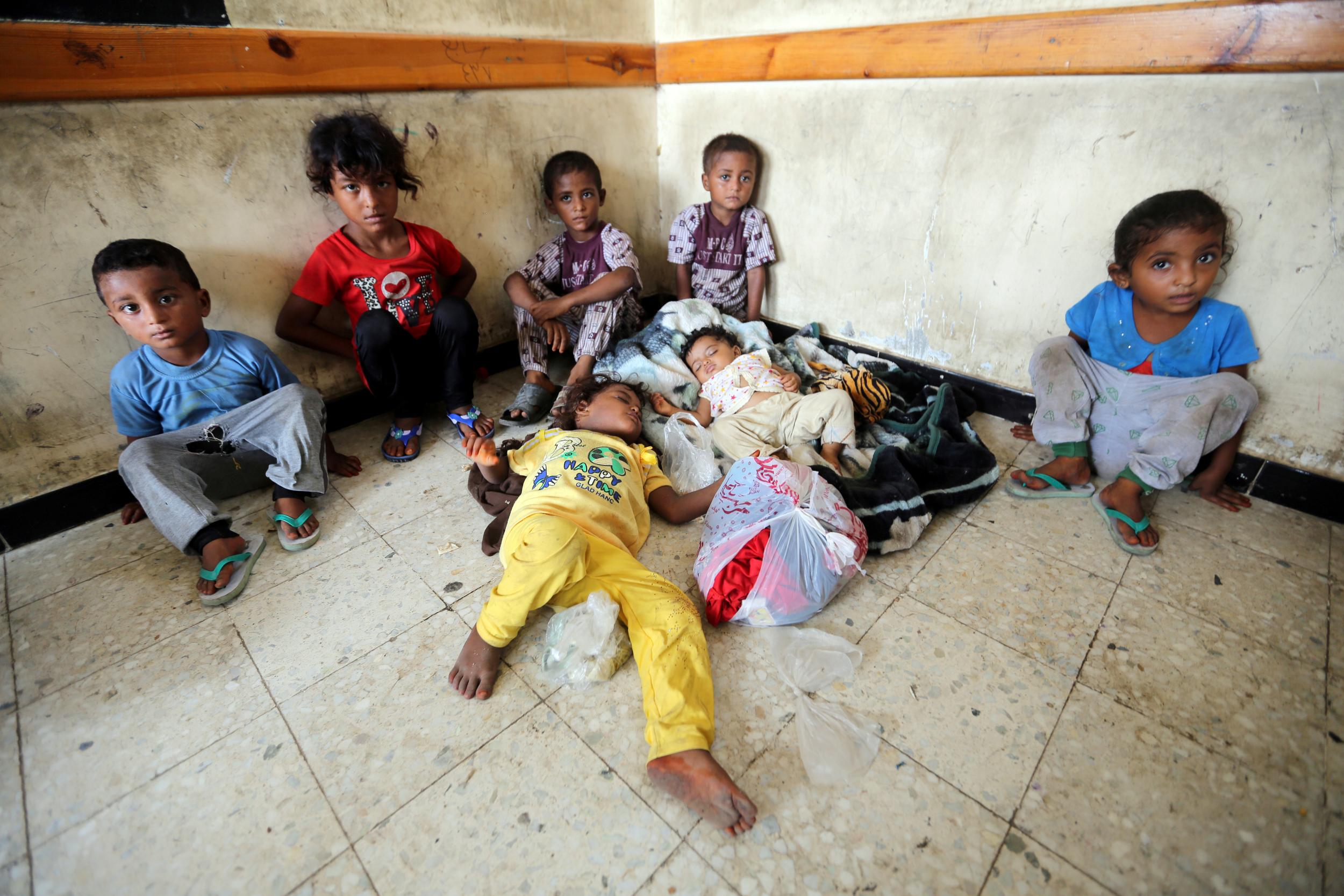'Make it stop': Civilians in Yemen’s Hodeidah trapped as fighting rages for strategic port city
Arab coalition says battle is aimed at ending wider war in Yemen. Civilians stand to suffer in the interim

Your support helps us to tell the story
From reproductive rights to climate change to Big Tech, The Independent is on the ground when the story is developing. Whether it's investigating the financials of Elon Musk's pro-Trump PAC or producing our latest documentary, 'The A Word', which shines a light on the American women fighting for reproductive rights, we know how important it is to parse out the facts from the messaging.
At such a critical moment in US history, we need reporters on the ground. Your donation allows us to keep sending journalists to speak to both sides of the story.
The Independent is trusted by Americans across the entire political spectrum. And unlike many other quality news outlets, we choose not to lock Americans out of our reporting and analysis with paywalls. We believe quality journalism should be available to everyone, paid for by those who can afford it.
Your support makes all the difference.Civilians in the Yemeni city of Hodeidah are dodging airstrikes in an attempt to flee advancing Arab coalition forces, residents have told The Independent.
Fierce fighting has broken out over the strategic city’s airport, with Apache helicopters aiming at the rebel Houthi snipers perched on the roofs of homes, schools and mosques in the adjacent neighbourhood of Manzar.
Airstrikes have pounded southern neighbourhoods and are deafening even from afar, resident Ahmed Abdullah Nasser said.
“People are trying to leave with rockets and mortars over their heads,” a local aid worker, who wished not to use her name, said on Monday.
“Other people are besieged in their homes. They don’t know if their family members managed to escape or who survived.
“It’s hot and there is no water and we are scared,” she added. “Please stop what is happening.”
At least 280 people are believed to have been killed in the six days since the Arab coalition, which fights on behalf of Yemen’s exiled government, launched Operation Golden Victory to reclaim the port city.
Aid organisations have been unable to reach southern neighbourhoods with food and chlorine tablets for purifying water.
There are no reliable figures for how many of the city’s 600,000 residents have been displaced from their homes, but the aid worker estimated at least 1,000 had tried to leave for the nearby village of Marawiah.
“The situation is becoming more tense and feels like conflict getting closer to the city,” said Islamic Relief’s deputy country director for Yemen, Salem Jaffer Baobaid.
“Travel is becoming much more limited. Lots of displaced people are arriving in the city; many going to live with families, or staying in schools and reception centres or being hosted by generous strangers.”
The battle for Hodeidah is expected to be the biggest to date in Yemen’s complex civil war.
Its residents have already endured three years of airstrikes and a Saudi-led blockade on the port, which has exacerbated a nationwide hunger crisis and created a cholera epidemic.
The port city has been under the control of Houthi rebels since 2015, and has become the country’s aid lifeline, through which more than 70 per cent of its food, aid, fuel and commercial imports flow.
Two-thirds of the population are now reliant on aid which passes through Hodeidah’s port to survive – leading the UN and aid agencies to warn that any damage to it could widen Yemen’s already dire humanitarian crisis.
The coalition offensive could endanger millions of civilians, the UN’s human rights chief, Zeid Ra’ad al-Hussein, said on Monday.
“I emphasise my grave worry regarding the Saudi and Emirati-led coalition’s ongoing attacks in Hodeidah which could result in enormous civilian casualties and have a disastrous impact on life-saving humanitarian aid to millions of people which comes through the port,” he said at the opening of a three-week session of the UN Human Rights Council in Geneva.
Also on Monday, the UAE’s foreign minister, Anwar Gargash, told reporters in Abu Dhabi the coalition’s three priorities in the fight are to protect civilians, the flow of aid and “force movement to a political process” with the Houthis.
“We will not allow this war to last for another two-three years … Three years of war is enough. It is time for a political process. The Houthis need to be part of that process; but you can’t be 3 per cent of the population, yet claim through the barrel of a gun to own 50 per cent of the country,” he said in remarks on Twitter.
The coalition has released a five-point humanitarian action plan to assist civilians displaced or otherwise affected by the fighting, although aid groups allege coalition offensives in the past have not taken adequate precautions to avoid loss of civilian life.
It is also feared the Houthis will not give up the heavily-mined city easily.
The UN’s special envoy to Yemen, Martin Griffiths, is still locked in talks with all parties to try and broker a ceasefire in which control of the vital port is ceded to UN control.
Subscribe to Independent Premium to bookmark this article
Want to bookmark your favourite articles and stories to read or reference later? Start your Independent Premium subscription today.
Join our commenting forum
Join thought-provoking conversations, follow other Independent readers and see their replies
Comments